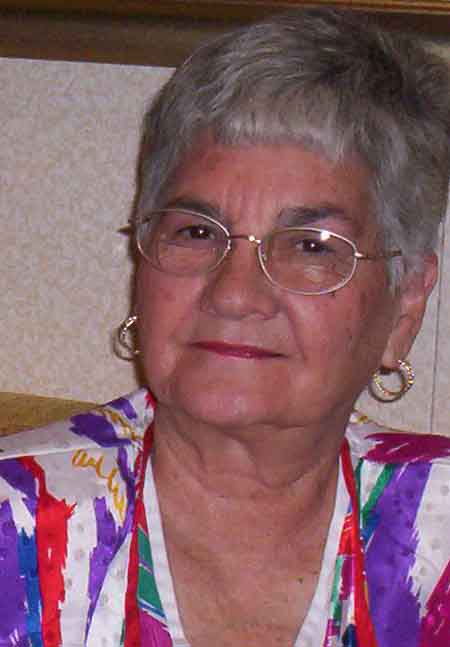NEWS PAGES
Obituaries
Archive
ADVERTISING
Commerce
Classified
Economic Development
TRAVEL
Area Papers
West Texas
STAFF
Smokey Briggs
Jon Fulbright
Peggy McCracken
Rosie Flores
LINKS
Other Sites
Weekly Newspaper and Travel Guide
for Pecos Country
of West Texas
Opinion
Tuesday, June 10, 2008

Squarely Pegged
By Peggy McCracken
Word puzzles puzzle
student of languages
Crossword puzzles have replaced Sudoku as my diversion of choice when I am idle for a few minutes. Like my late husband, I find my brain has to have something to do at all times, so I can’t even eat without reading or working a puzzle.
Sudoku, the numbers game, fascinated me for a while, but once I got the hang of it, I lost interest.
I never liked crossword puzzles, despite being a wordsmith of sorts. They seem like a waste of brainpower that could be put to better use. Yes, you learn a new word now and then, but it’s much more entertaining to learn new words by reading.
Authors I enjoy paint word pictures with common words, throwing in a new one now and then to spice up the story. Usually, the context explains the word’s meaning, so I don’t have to go to the dictionary to get a clearer picture.
You might think a writer would keep a dictionary handy, but I don’t. I didn’t like looking up the definition of words when I was in grade school, and I still don’t. I prefer to use words any third grader would understand.
However, my recent crossword puzzle efforts have made me realize how closely related different languages are. For example, this week I had a six-letter word starting with L. The clue was “soap suds,” and the only word I could think of was the Spanish “laver,” which I believe means to wash. That didn’t fit, and the answer turned out to be “lather.”
Now, those words appear to be closely related, so I went to the dictionary to look up the word “lather” to see if it is derived from “laver.” My dictionary says it is from the Anglo-Saxon “leathor,” which means soap.
If I chose to dig further, I’ll bet I would find both words derive from the same Latin word. I know nothing about Latin, so won’t pursue that avenue.
The more I read and work puzzles, the more I notice the relationship of English to other languages. Just like the United States is a hodgepodge of cultures, so English is a hodgepodge of languages.
By the way, I have three levels of crossword puzzles working. All are books that Leon was working on or left on the shelf because they were too easy for him. I use an easy one on the dining table, and finish at least one puzzle while eating. Most of the time I don’t have to look up any answers.
In one bathroom, I have a medium-difficulty book that I can get about half the words without looking up the answers. In the other bathroom is one that has such off-the-wall clues that I can get only a few answers. This type of puzzle used to drive me crazy, but now I just go to the answer page for help. Maybe that’s cheating, but I call it learning new words.
Sometimes I don’t know what the new words I learned mean, such as this clue, “grampus.” The answer is “orc.” Now what does that mean? My little dictionary doesn’t even have it, and this version of Word doesn’t have a thesaurus. If you know, please email me the answer.
“Do not snatch Your word of truth from me, for my only hope is in Your laws.” Psalm 119:43, NLT
EDITOR’S NOTE: Peggy McCracken is Enterprise columnist and feature writer. Contact her at HYPERLINK "mailto:peg2@pecos.net" peg2@pecos.net\
Pecos Enterprise
York M. "Smokey" Briggs, Publisher
324 S. Cedar St., Pecos, TX 79772
Phone 432-445-5475, FAX 432-445-4321
e-mail news@pecos.net
Associated Press text, photo, graphic, audio and/or video material shall not be published, broadcast, rewritten for broadcast or publication or redistributed directly or indirectly in any medium.
Copyright 2003-04 by Pecos Enterprise

